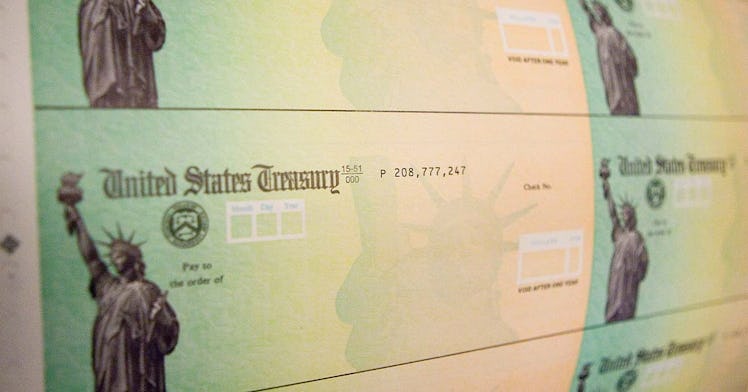4th Stimulus Check Gaining Steam In Congress — Could it Happen?
Why it's more likely than ever, and what obstacles stand in the way.

Nearly a year after the first stimulus payments made their way to Americans struggling with the economic calamity that is the COVID-19 pandemic and as a third round of checks is still being distributed, a growing number of lawmakers are getting behind a plan to send a fourth stimulus payment.
Initially a fringe position, a growing number of lawmakers are signaling they’d get behind recurring or 4th stimulus payments. Fifty-three members of the House and 10 senators, including the chairs of the Senate’s three major economic committees, have signed on to two separate letters to President Joe Biden calling for expanded and recurring stimulus payments that would continue for the duration of the COVID-19 crisis.
The Senate letter, reported on by Fatherly in the past, cites data showing how effective the direct payments, along with enhanced unemployment insurance, have been at combatting poverty and how popular the payments are with the public regardless of political views. The House letter points out how quickly previous payments were used and the particular pain felt by people of color as reasons for the IRS to send out more, recurring payments.
But could it happen? Neither Biden nor Vice President Kamala Harris, whose support would be essential to passing such a bill, have come out in support of additional recurring payments. And the 10 senators who signed the letter are 40 short of the 50 at minimum whose votes would be necessary to pass such a bill that, it should be noted, also needs the support of a lot more members of the House to make it that far in the process.
Whether or not a fourth stimulus payment and/or recurring payments continue to pick up legislative support largely depends on whether the American Rescue Plan Act is perceived to be doing enough to hasten the economic recovery. If case numbers and unemployment continue to go down as vaccinations go up, it could be difficult for proponents of an ongoing stimulus to convince their colleagues to get on board.
On the other hand, the president’s party typically suffers in midterm elections, meaning unified Democratic control of the White House and Congress is likely to end next year. With the clock ticking, and a new willingness to fight against the filibuster, Biden has signaled a willingness for bigger, more debt-financed legislation than previously expected.